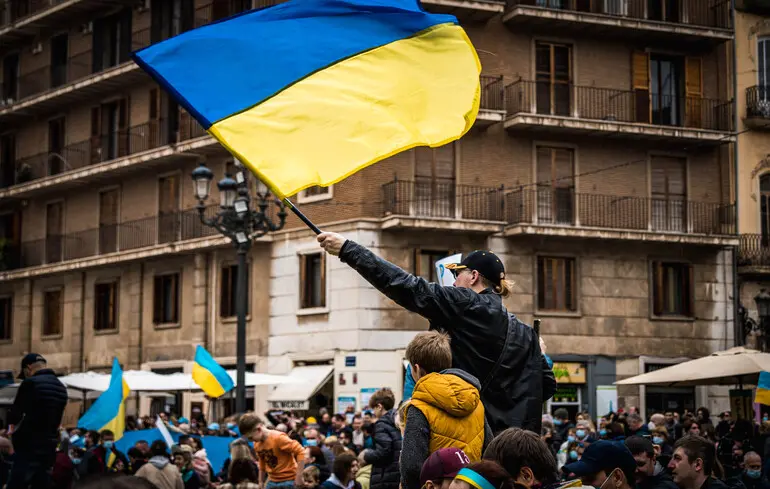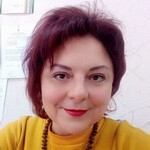Lessons of the Day of Unity: How Russia Destroyed the Ukrainian Elite
On January 22, Ukraine traditionally celebrates the Day of Unity. This is a holiday that, perhaps, has no less symbolic significance than Independence Day. On a slightly snowy and at the same time sunny January 22, 1919, on Sofia Square in Kyiv, activists of the Ukrainian People's Republic (UPR) and the Western Ukrainian People's Republic (WUPR) proclaimed the Act of Union of the two republics, and in fact, the reunification of the two components of a single national organism and the creation of an independent Ukrainian state. At that time, Ukrainians had already been trying to survive the war with the Russian Bolsheviks for several years. Such fateful moments as the seizure of Kyiv by Muravyov's troops and the terrible terror against local residents, the use of poison gas, the destruction of Mykhailo Hrushevsky's house on Pankivska Street, the battle near Kruty, and the signing of the Brest Peace Treaty had already left a significant mark on the people's memory.
Such a small excursion into history allows us to understand how geopolitically, economically, and militarily difficult it was to defend the borders of Ukraine and the living space of an entire nation at that time, and how important this open manifestation of the political aspirations of people who historically, culturally, and spiritually always felt integral was. Thus, the Act of Union was supposed to strengthen the enthusiasm of the Ukrainian people for the struggle for freedom, emphasize the consolidation of all Ukrainians and their meaningful desire to realize their will through the tools of a single, united state.
Unfortunately, it is worth noting that the loss in the war with Bolshevik Russia, the deceptive belief of some of our leaders that it would be possible to come to an agreement with the Russian elites, who allegedly had similar beliefs, which are inherent in the supporters of the so-called leftist views, and ultimately, the illusions and egoism of Western powers – all this led to the defeat of the Ukrainian Revolution of 1917-1921 and set us back from creating our own independent state for more than half a century.
At the same time, analyzing this previous era, we see many things in common with that period of time and with the times in which we now live. Now, just as before, we have another war with the Russian aggressor, we also hope for the support of Western partners and are outraged by the clumsiness or indifference of international institutions, and we also want to fully and freely live, work and make decisions on our own ancestral land.
And that is why on this holiday it is worth talking not only about the significance of certain historical events, but also about the lessons that were very difficult for us and which are worth remembering. In particular, one of them should be the realization of the impossibility of understanding and finding a common language with those who want to destroy us. Speaking on this topic, it is worth emphasizing that the entire subsequent fate of the figures and even ordinary participants in the Ukrainian Revolution of 1917–1921 showed that Russian imperialism, wrapped either in the communist red flag or in the current tricolor, does not provide for equal coexistence with other peoples and tolerance of their cultural differences or political rights. Thus, practically all high-ranking officials of the period of the Ukrainian Revolution who, for one reason or another, remained in the territory occupied by the Soviets, with some exceptions, were subjected to communist repressions. The authors of the book about the repressed ministers of the Ukrainian People's Republic (UPR) "Woe to the Vanquished" recall four waves of persecution and reprisals in various ways against the figures of the Ukrainian People's Republic (UPR) (1919–1920, 1929 - mid-1930s, 1937–1938, 1945–1948).
Moscow's political leaders directed all their administrative and propaganda efforts not only to destroy the remnants of Ukrainian autonomy, but also to persecute those citizens who preserved the memory of the Ukrainian Revolution of 1917–1921. In the Ukrainian Soviet Socialist Republic, repressions against the so-called petty-bourgeois intelligentsia were launched, in particular through fabricated trials of the “Union for the Liberation of Ukraine” and the “Ukrainian National Center” (the “leader” of which was planned to be Academician Mykhailo Hrushevsky). In addition, it is worth noting that during the Great Terror, most of the leaders of the Ukrainian liberation movement who did not have time to emigrate were destroyed. The Russian Bolsheviks acted cynically, but thoughtfully and persistently, because the discrediting or physical liquidation of leaders seriously undermined the ability of the Ukrainian community to resist enemies. Thus, the Bolsheviks, through dispossession, the Holodomor-genocide of 1932–1933, and repressive measures, cleared the social field and thus made it impossible for any real or even hypothetical opposition to emerge. In addition, the figures of the Ukrainian People's Republic (UPR) were for Soviet politicians a kind of living proof of the dreams and potential of Ukrainians, their different way of thinking, worldview and demands for national separateness. And these prominent political leaders also witnessed the coming to power of the Russian Bolsheviks, their manipulations, deceptions and lies. Therefore, the communist regime began to shoot and send to labor camps representatives of the Ukrainian elite as carriers of liberation ideas.
The years full of blood and violence of 1937–1938 are considered the third wave of repressions against government officials during the Ukrainian Revolution. According to scientists, eight out of eleven ministers of the Ukrainian People's Republic (UPR) were shot by decision of extrajudicial bodies. In the Sandarmokh tract (Karelia, Russian Federation), the Minister of Public Education of the Ukrainian People's Republic (UPR) A. Krushelnytsky, the Chairman of the Council of People's Ministers of the Ukrainian People's Republic (UPR), one of the initiators of the signing of the Act of Union V. Chekhivsky, and the Minister of Foreign Affairs of the Ukrainian People's Republic (UPR) M. Lyubynsky were killed by Chekists' bullets. In Kyiv, on September 22, 1938, a bullet also hit 46-year-old Teofan Cherkasky, about whom I would like to tell you more.
Teofan Vasylovych was born in 1892 in the village of Rosishky, Kyiv region, had various interests, he managed to teach, master the profession of an engineer-economist and work in the famous publishing house "Rukh". His young years were spent in the midst of political struggle. It is worth noting that he was a member of the Ukrainian Party of Socialist Revolutionaries, a delegate to the Labor Congress (January 1919), Minister of National Economy of the Ukrainian People's Republic (UPR) (June–August 1919) and Minister of Press and Propaganda of the Ukrainian People's Republic (UPR) in the government of Isaac Mazepa (August–December 1919).
Since Teofan Cherkasky already had experience of communicating with the United State Political Administration in 1931–1932, after his release from prison camps he probably tried to "hide" away from Kyiv or Kharkov, namely in the city of Yalta. Moreover, he became a teacher of Russian at the Livadia Secondary School. However, unfortunately, the employees of the People's Commissariat of Internal Affairs (NKVD) did not let the Ukrainian figures out of their sight for a minute. So, on February 10, 1938, they came for Teofan Cherkasky. During the search, the Chekists seized part of the archive (charter, minutes of meetings) of the Ukrainian Socialist Revolutionary Party, whose representatives, by the way, expressed ideas quite close to the Bolsheviks, namely the socialization of land, the nationalization of factories and plants, the "dictatorship of the working masses", etc. However, during the Stalinist period, no one was interested in "political closeness" or the evidence base... The communist special service accused Teofan Cherkasky of "organizing an underground Central Committee of the Ukrainian Party of Socialist Revolutionaries (UPSR)". In addition, he was also accused of "preparing an uprising". The so-called court hearing lasted 15 minutes. The sentence was carried out immediately, and Theofan Cherkasky's body was buried in one of the mass graves of the secret special section of the People's Commissariat of Internal Affairs (NKVD) in the Bykivnyansky forest on the outskirts of Kyiv.
No less tragic was the fate of Stepan Posternak, an employee of the Ministry of Public Education (1919), as well as a librarian, teacher, historian, and first director of the All-People's Library of Ukraine (now the V. Vernadsky National Library of Ukraine). Stepan Pylypovych received a good education at the Nizhyn Historical and Philological Institute of Prince Bezborodko (graduated in 1908) and St. Petersburg University. In addition, for a long time, he taught and, as a high-level specialist, was involved in the development of the national education system during the period of the Ukrainian People's Republic (UPR). It is not known for certain what forced him to remain under Soviet occupation. Perhaps he stayed because of his sense of responsibility for his “life’s work,” since he took both his own scientific work (he was a scientific secretary of the Encyclopedic Dictionary Commission, a member of the Local History Commission, and deputy chairman of the Bibliographic Commission of the National Academy of Sciences of Ukraine) and his library activities very seriously. He was first arrested in 1929 in the case of the “Young Academy,” the “Union for the Liberation of Ukraine,” and the “Brotherhood of Ukrainian Statehood,” but was later released from arrest in 1930. The “punishing sword” of the Bolshevik coup hung over his head for the second time on December 30, 1937. During the arrest, the Chekists were not very inventive in their reasons for the arrest and simply added all the previous episodes of Stepan Posternak’s biography to the legitimate violation. Among these violations were work in the Commissariat for the Affairs of the Kyiv School District and the Kyiv Provincial Commissariat for Public Education, membership in the Ukrainian Social Democratic Labor Party, and much more. Thus, Stepan Pylypovych, typical of the period of the Great Terror, was accused of participating in "anti-Soviet, nationalist, terrorist formations" and conducting counter-revolutionary work. He was shot on January 19, 1938 by decision of a special troika of the People's Commissariat of Internal Affairs (NKVD) at the Kyiv Regional Directorate of the People's Commissariat of Internal Affairs of the Ukrainian SSR.
Both were rehabilitated at the beginning of the period of formation of Ukrainian independence.
Thus, we can see that the physical liquidation of representatives of the Ukrainian state elite, which continued even after World War II, combined with a broad propaganda campaign, was aimed at discrediting the names of the figures of the Ukrainian Revolution of 1917–1921, erasing them from the people's memory, and falsifying their ideological achievements. It is worth noting that for a while the communist regime succeeded in this. However, now, remembering these names, studying their heritage, dedicating various projects to them, we not only pay tribute to our dead, but also insist on the permanence of our state aspirations, on the importance for us of previous historical lessons.
And these lessons, for us in particular, consist in the fact that it is necessary to preserve national unity and not allow the occupation of our territory by an enemy army, because the occupier will not take into account the status of a person and will destroy both leaders and ordinary people. Likewise, one cannot shift responsibility for one's own state and one's own destiny either to other countries, because competition reigns in the world and no one will defend someone else's land, or to other citizens, guided by the principle "I am not made for the army," because our common salvation is in our own hands.
Please select it with the mouse and press Ctrl+Enter or Submit a bug












 Login with Google
Login with Google